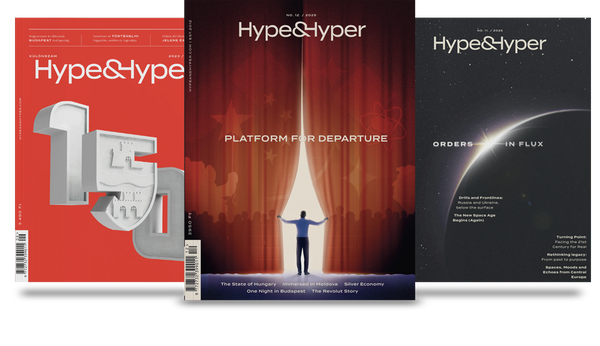It is all over the internet that Hungary plans to tax FinTech companies, and Hungary is not the only country. What is the truth behind the rumors? And if they are true, who should pay? What does FinTech mean, by the way? Is it a forerunner of a simpler or a more dangerous future?
The maximum tax payable on financial transactions in Hungary will be increased under the new extra profit tax. After the government decree was published in the Official Gazette of Hungary, some details became clear regarding the new extra profit tax that had been circulating on the internet for a while. The transaction tax will increase from 0.3% or a maximum of HUF 6,000 to 0.3% or a maximum of HUF 10,000 for each transaction. As a result, the existing HUF 2 million fee limit will be increased to HUF 3.333 million for all non-cash transactions.
Furthermore, and most critically, the law now also requires financial institutions with a head office or branch outside Hungary to pay the levy. This is the point that affects the well-known FinTech startups, meaning that companies like Revolut, Wise, or PayPal should also have to pay extra tax. It is already sure that they must register with the National Tax and Customs Administration (NAV) by 1 September 2022 at the latest and become subject to the financial transaction tax (FTT) from already 1 July 2022.
So, will we bear the brunt of the government’s plans?
Responding to earlier rumors, Péter Gergely, an expert from Biztos Döntés, a Hungarian financial advisor website, has clarified the new rules. According to Gergely, the new government decree stipulates that the main parts of the current Financial Transactions Act will not be modified, with only a few limitations and exemptions being overwritten. The fee will not change, only its upper limit will, but this is of little interest to most individuals. In fact, the change only affects transactions between HUF 2 million and HUF 3.333 million, which mainly concerns businesses.

Most probably, what is free now will remain free in the future
Even if the companies offering banking services comply and register with the Hungarian tax authorities, one issue remains. They cannot simply pass the FTT onto its customers as a new cost since this would be restricted by law. Therefore, those services provided for free by Revolut cannot be made payable so easily. The only solution would be to introduce new paying tariffs and push customers to accept them, but it seems unlikely that a global FinTech company would take this step.
There are many financial ecosystems worldwide, each with different regulatory frameworks. Given this diversity, no single approach could work in each state and satisfy all stakeholders in all countries. So, FinTech companies have to comply with different regulations in the different countries where they operate. Nonetheless, this does not necessarily mean that the borders are the main factors when diversifying their services.
The tax affects transactions, but the FinTech world is much more than that
FinTech aims to improve and automate financial services to provide a better user experience. Through specialized software and advanced algorithms, FinTech enables businesses and customers to manage their financial transactions and activities more efficiently. FinTech is not just about sending money or making payments; the umbrella term also covers various digital lending services, insurances, and simple and fast investments.
The FinTech industry is still young, but it is growing and innovating at an extraordinary pace, making it hard for financial regulators to understand the new technologies and incorporate fintech companies into the existing regulatory framework. Fortunately, legislators and other regulators are aware worldwide of the necessity to innovate; thus, in most cases, they support and conduce FinTech pioneers.
On the other hand, no one wants existing risks to grow and cybersecurity problems to increase as the FinTech industry expands.
FinTech is alluring but could also be a source of new threats
Digital cash transfers have boomed in many countries as people expected that they can help to slow the spread of the COVID-19 pandemic. The benefits of FinTech and digital financial services have never been more evident. Nonetheless, there are some risks for customers.
As FinTech business models have become too complex to be transparent, and many customers are unaware of them, the risk of losses due to fraud or misconduct has increased.
FinTech can facilitate access to riskier or more complex financial products for customers who do not have the knowledge or experience to use them effectively. The stock market is a good example of that. Revolut and many other FinTech companies will only let you trade on the stock market if you have completed a test on your understanding of various related concepts. Furthermore, in automated FinTech business models, some scoring and ranking algorithms can be unfair, discriminatory, or biased, though this can happen with any similar platform service.
FinTech has many advantages
By significantly increasing efficiency, FinTech companies can compete with traditional financial institutions’ productivity. Some even believe that traditional banks and financial institutions will disappear in the long term, but, of course, this is not certain yet. The industry uses innovative technologies, but they do not necessarily cost a fortune, as FinTech firms often limit themselves from spending large sums on technology. The business models matter more than the development.
When applying for any loan online, FinTech firms only work with digital lenders, who can provide same-day funding. It has never worked so quickly. If you need a short-term or payday loan, FinTech makes it easier. People can find many lenders online and access fast services simply. This is definitely an advantage compared to traditional banks, where even a quick process can take months. FinTech is a smart, efficient, convenient, and fast solution, which is why most businesses prefer it.
Robo-advisors are one of the most revolutionary branches of FinTech. Companies providing these services ask their customers specific questions and use unique algorithms to develop a personalized investment strategy for them. This is one of the simplest ways to invest or build a personal financial plan and has become increasingly popular with those who prefer not to actively trade or just want to rely on algorithms to manage their finances.

Issue No. 12.

GET THE LATEST ITEMS FROM OUR STORE










